Amid economic uncertainties, the real estate industry has found relief in digital marketing. This evolution includes diverse tools like social media campaigns, paid advertising, and search engine optimization. Specialized digital marketing courses now assist real estate businesses in crafting and executing effective digital marketing strategies. Digital marketing has evolved as a necessity for real estate businesses mainly due to how the digital world has changed consumer behavior.
The Importance of Real Estate Digital Marketing
Do all home buyers kick off their search online? Absolutely. Almost all buyers (96%) use digital resources at some point during their buying process.
Digital marketing is a game-changer that attracts clients, showcases properties, and seals deals. The benefits extend beyond traditional methods:
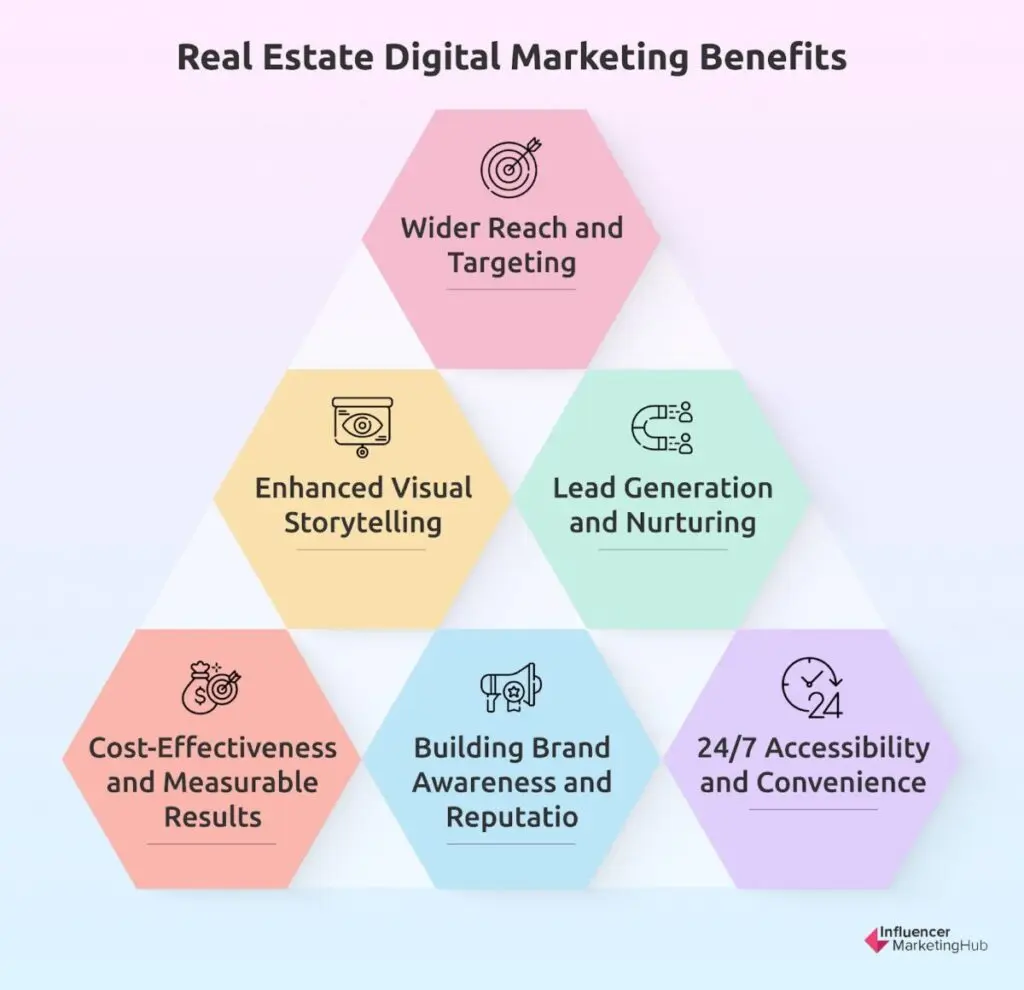
Real Estate Digital Marketing
Wider Reach and Targeting
Use platforms like Zillow and social media for a global reach. Tailor your marketing to specific demographics, interests, and locations to effectively connect with the right audience.
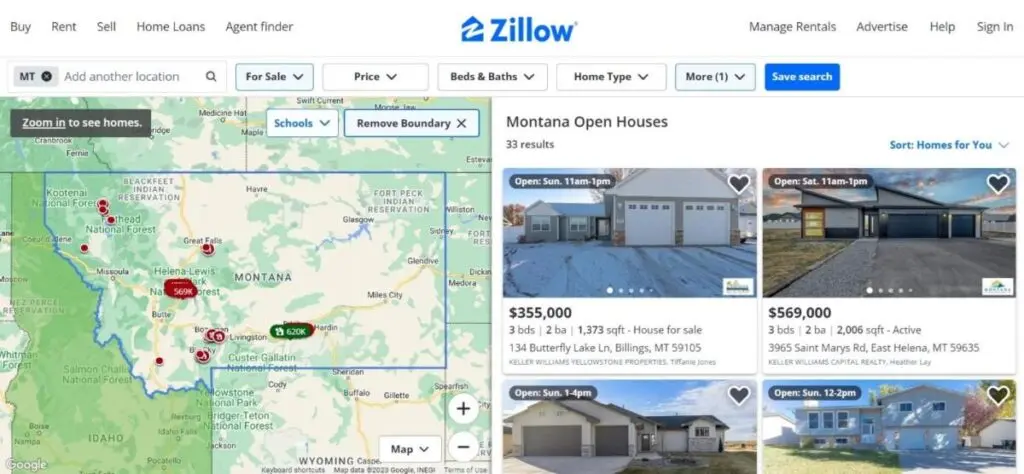
A screenshot of a map Description automatically generated
Enhanced Visual Storytelling
Trade static photos for immersive experiences. Virtual tours and drone footage can better capture buyer interest while providing a comprehensive view of the property. Take a look at Matterport’s 3D virtual tours. They enable viewers to walk through every room, creating a realistic, immersive experience.
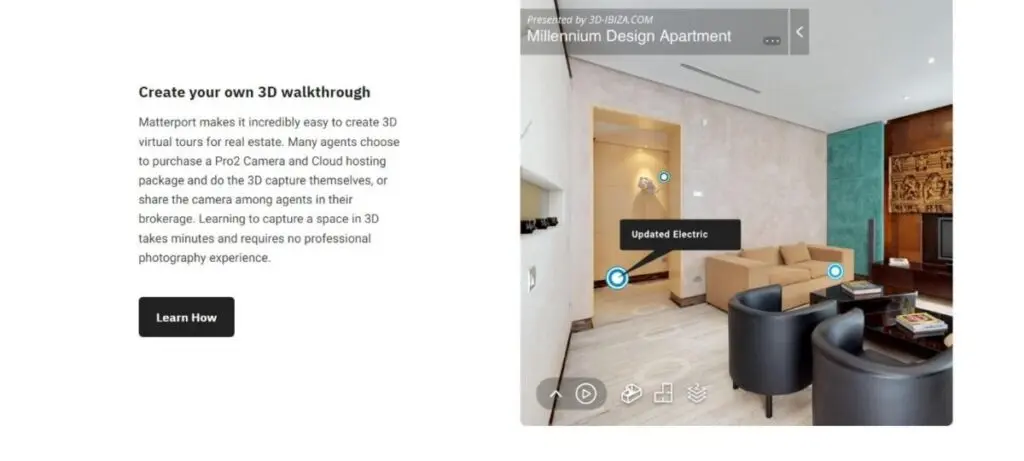
Matterport’s 3D virtual tours
Lead Generation and Nurturing
Go beyond properties; focus on relationships. Capture leads through website forms, social media, and emails. This nurtures personalized communication, laying the foundation for lasting connections.

Website forms
Cost-Effectiveness and Measurable Results
Choose cost-effective digital marketing over traditional methods. Platforms like Google Ads provide real-time insights, allowing you to track and optimize campaign performance efficiently.

Google Ads
Building Brand Awareness and Reputation
Consistently be present on social media, share insightful blog posts, and collect positive reviews. This builds trust, positioning you as a credible authority in the local real estate landscape. For instance, Inman, a reputable real estate news provider, regularly hosts webinars.

Inman
24/7 Accessibility and Convenience
Your digital presence is always on, which is why it’s helpful to use chatbots to answer questions and schedule appointments beyond office hours. A website chatbot can handle basic queries and appointments anytime, enhancing convenience and responsiveness.
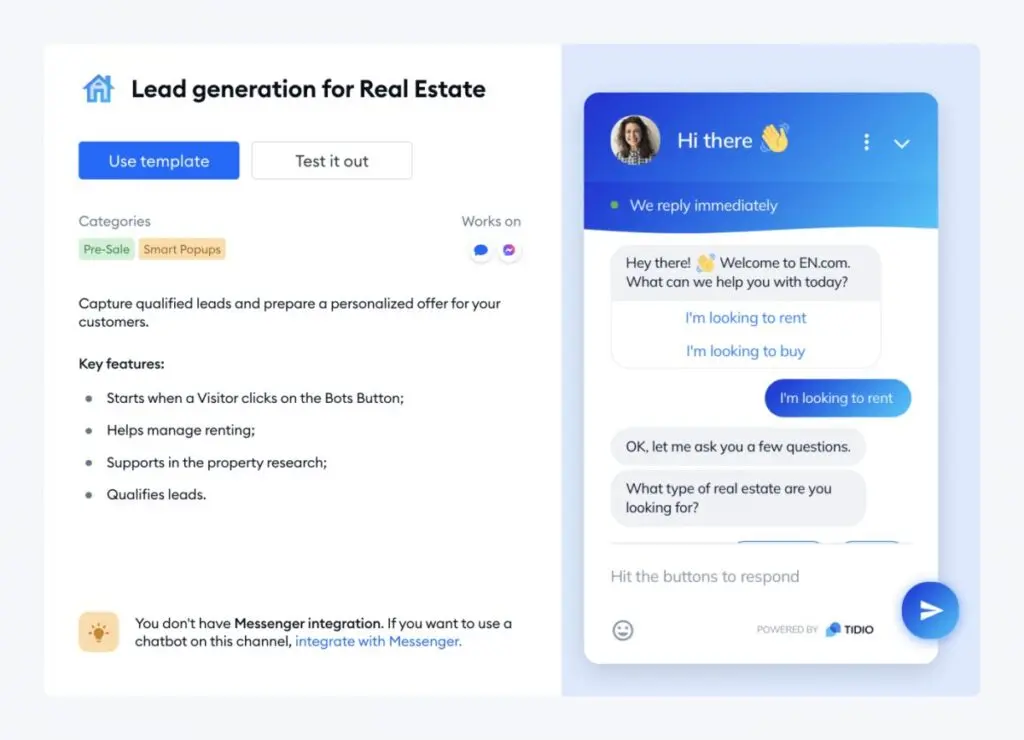
A screenshot of a chat Description automatically generated
Digital strategies aren’t exclusive to buyers; sellers benefit, too. Listing a property online can lead to collaboration with another agent, expediting sales. Additionally, real estate web marketing engages past satisfied clients who can become valuable referral sources and potential repeat customers.
7 Real Estate Digital Marketing Strategies
In real estate, trust is the key to sales success. Marketing plays a pivotal role in establishing this trust. Beyond trust, your marketing endeavors also contribute to generating qualified leads. Here are some digital marketing strategies you can use.
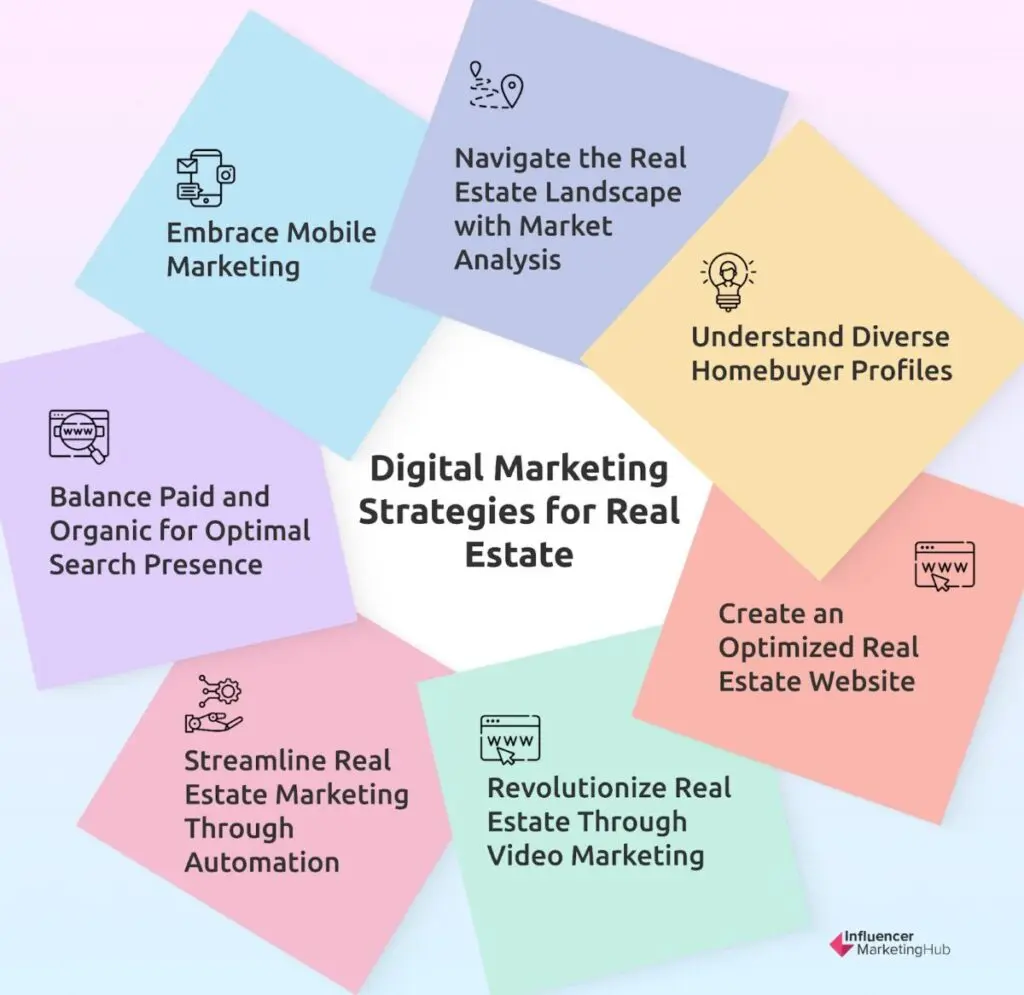
Real Estate Digital Marketing Strategies
1. Navigate the Real Estate Landscape with Market Analysis
Understand your position in the real estate market through a comprehensive analysis that covers:
-
Demand & Supply: Assess market dynamics to gauge the level of competition between buyers and sellers.
-
Pricing Trends: Analyze recent sales of comparable properties for accurate listing prices and negotiation strategies.
-
Inventory Snapshot: Identify high-demand property types to tailor your marketing and focus on your niche.
-
Local Factors: Consider economic trends, job markets, and community developments impacting property values.
This market awareness guides your digital strategy, allowing you to target the right audience with relevant messages. An accurate assessment saves time and capital, ensuring your marketing budget prioritizes areas with the highest ROI potential.
Leverage software tools like Moz for detailed insights into your rivals’ digital audience and marketing strategies. Understanding your position empowers you to confidently navigate the digital real estate landscape, converting interest into closed deals.

Moz
2. Understand Diverse Homebuyer Profiles
Diversify your target audience beyond local boundaries to stand out in the competitive real estate landscape. Focus on critical aspects of your target audience:
Customer Types:
-
First-time buyers (ages 20-35): Prioritize budget considerations.
-
Move-up buyers: Older, seeking more space for family.
Location Preferences:
-
First-time buyers: Prioritize proximity to work and transportation amenities.
-
Move-up buyers: Emphasize neighborhood safety, school proximity, and luxury.
While location remains vital, delve deeper into client details — age, income, lifestyle, and family needs. Are you targeting young professionals for urban condos or empty nesters eyeing waterfront retirement homes? This insight shapes effective marketing strategies.
But go beyond demographics; tap into audience aspirations and life events guiding housing decisions. Understand whether they seek career relocation, family expansion, or retirement downsizing. Tailoring messages to these triggers deeply resonates and sparks interest.
Leverage this specificity to reach prospects locally and in other regions. Marketing research enables precise communication tailored to specific audiences, adding value and avoiding a sales-centric approach. Attract homebuyers from distinct niches within and beyond your locality.
3. Create an Optimized Real Estate Website
After analyzing market data and understanding different buyer types, translate those insights into a website tailored to your ideal audience. Remember, your website serves as your virtual salesperson, so it should be able to anticipate what your audience might want to know or look for.
For instance, if you're targeting first-time buyers, incorporate elements like mortgage calculators and educational content on the buying process, and emphasize entry-level listings. Design navigation with your audience in mind. A luxury buyer might want a focus on lifestyle, while affordability is likely prioritized by first-time buyers. It's also important to speak their language; both terminology and content should be capable of addressing your audience's needs and pain points.
High-quality photography, virtual tours, and neighborhood information go a long way in engaging potential buyers. Consider collaborating with a real estate digital marketing agency for informed decisions, such as the most prominent place for the search bar on the homepage.
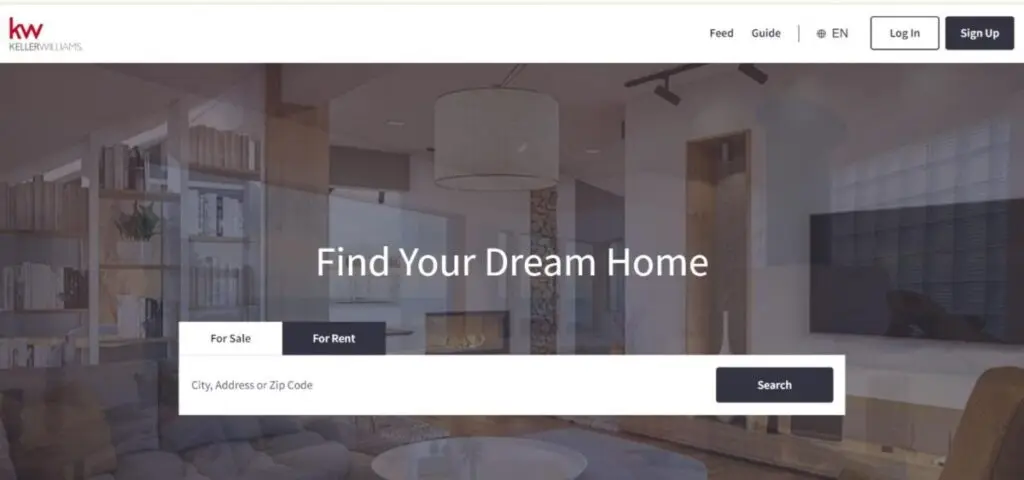
A screenshot of a home page Description automatically generated
Furthermore, communicate the value of your services through your website’s content. Highlight the benefits concisely, demonstrating how your offerings enhance your prospects’ lives. Consider these vital factors:
-
Navigation: Simplify the structure for easy visitor viewing.
-
Load Speed: Optimize load speed, as a delay can result in a 5% drop in conversion rates.
-
SEO: Ensure your website is optimized for search engines. While focusing on UX covers most ranking factors, additional efforts in on-page and off-page optimization increase the likelihood of higher search result rankings.
4. Revolutionize Real Estate Through Video Marketing
Videos will drive 82% of internet traffic by 2025. As such, captivating videos can seal the deal in this visually-centric world. Ensure your real estate videos make a lasting impact by:
-
Master Storytelling: Move beyond the standard property tour. Craft a narrative that resonates emotionally, depicting families enjoying time in their backyard, professionals working in sunlit home offices, or couples savoring coffee together on a scenic balcony.
-
Sensory Immersion: Enhance visuals with ambient sounds, music, and, using VR technology, subtle aromas. Offer a multi-sensory experience, letting viewers hear ocean waves or smell the pine air of a mountain cabin. Partner with a VR tech company for virtual tours with scent diffusers, releasing scents like freshly baked cookies or crackling firewood.
-
Hyper-Targeting, Micro-Moments: Tailor bite-sized clips for specific platforms and audiences. Craft Instagram Stories for first-time buyers, YouTube tutorials for investors, and Facebook Live Q&A sessions for retirees seeking downsizing advice.
-
Data-Driven Optimization: Don’t just post; track engagement metrics, analyze viewer behavior, and adapt your strategy based on real-time data. Identify video segments that hold attention and refine content accordingly. Use YouTube analytics to pinpoint moments where viewers drop off, potentially improving engagement by revising those sections.
-
Collaboration and Authenticity: Partner with local businesses, influencers, or clients for unique perspectives. Have a chef showcase the gourmet kitchen, an interior designer highlight customization options, or a satisfied client share their living experience.
One of the leading companies crafting top-notch real estate videos is Lifestyle Production Group. They specialize in creating videos for realtors and agencies, focusing on showcasing homes' architecture and their surroundings. Watching their videos on their YouTube channel can help you learn how to build a real estate brand using exceptional video marketing.
Remember, impactful real estate video marketing builds connections, evokes emotions, and leaves a lasting impression. Utilize storytelling, sensory immersion, targeted content, data-driven insights, and authentic collaborations to transform your videos into powerful lead magnets, closing more deals than ever. Here are additional real estate video marketing tips to help you create powerful video content.
5. Streamline Real Estate Marketing Through Automation
Various multichannel marketing automation tools automate tasks like email and social media campaigns, delivering personalized customer messaging. They cover lead management, ROI reporting, landing page testing, online ad campaigns, and more.
Shift your perspective on real estate marketing automation, viewing it as a strategic evolution rather than an expedited alternative. Think of outreach with new leads as “follow-up sequences,” streamlining your communication process. For every agent, regardless of specialization, four crucial avenues of real estate marketing automation demand attention:
-
Email Marketing: Automate personalized messages, such as newsletters and property listings, targeting specific audiences based on interests.
-
Social Media: Utilize automation tools for post scheduling, follower engagement, comment responses, and targeted ads across platforms.
-
Lead Generation: Employ automated methods like website forms, landing pages, and social media campaigns to attract and capture new potential clients.
-
CRM Automation: Leverage Customer Relationship Management software for automated data entry, email follow-ups, task scheduling, communication tracking, and enhancing lead nurturing.
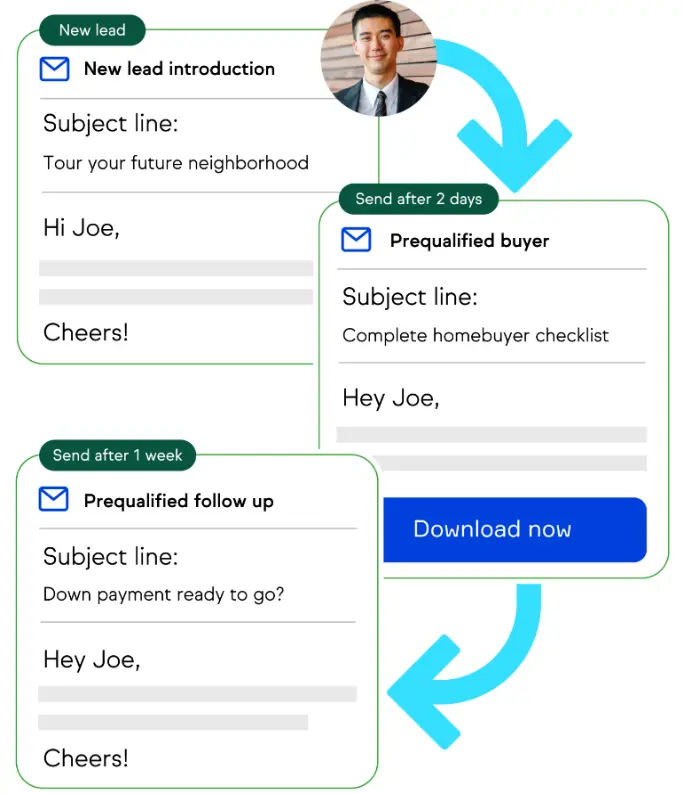
Leverage Customer Relationship Management
Real estate marketing automation transforms your decision-making, providing detailed insights for precise growth strategies without the uncertainties of operating in the dark. Here are some benefits of real estate marketing automation:
-
Increased lead generation and nurturing efficiency: Replace paper sign-ins with digital forms for efficient lead capture. Set up automated email and SMS sequences to engage and nurture leads effectively.
-
Personalized communication with leads and clients: Tailor communication to individual interests and use CRMs to tag leads based on interactions for efficient, tailored messaging.
-
Consistent branding and messaging: Maintain a unified brand identity with a consistent tone across all marketing materials. Use automated tools for centralized content management and automated sequencing.
-
Improved ROI for marketing spend: Track campaign effectiveness, lead acquisition costs, and forecast marketing budgets with precision.
6. Balance Paid and Organic for Optimal Search Presence
A solid organic search presence is a marker of credibility and authority. Clients often trust organic results more, perceiving them as unbiased. Established organic traffic tends to yield leads at a lower cost than paid advertising.
Achieving a balance between paid and organic approaches maximizes your ROI. Here’s a systematic guide:
-
Keyword Strategy: Research and select keywords aligned with your real estate market. Include highly targeted, location-specific keywords for both paid and organic campaigns.
-
Content Quality: Create high-quality, relevant website content for potential clients.
-
On-Page SEO: Aside from keywords on content, optimize title tags, meta descriptions, and image alt tags. Ensure technical soundness, mobile-friendliness, and fast loading times.
-
Local SEO: Prioritize Google My Business optimization, encourage client reviews, and maintain consistent NAP information.

Google My Business
For Google Ads:
-
Ad Campaign Structure: Organize ads by themes or keyword groups for relevance.
-
Landing Pages: Direct users to dedicated, aligned landing pages focusing on quick loading and mobile-friendliness.
-
Quality Score: Monitor and enhance your Google-assigned Quality Score for improved ad positioning and cost reduction.
Most digital marketing agencies provide robust SEO services aside from other marketing solutions. If you’re collaborating with one, ask about their SEO practices.
7. Embrace Mobile Marketing
Sure, not all property buyers use their smartphones to buy their homes, but mobile searches are rising across all economic sectors. Real estate companies shouldn’t be left behind. With available mobile property apps like Love Your Postcode and Zoopla, having a mobile-friendly website is necessary.

Mobile-friendly website
Here’s how to ensure you have a mobile-first approach strategy:
- Responsive UI: Have a website that looks and works correctly, no matter what device your visitors use to access it. Use touch-friendly menus to simplify navigation. Optimize visuals for smaller screens, ensuring high quality and quick loading.
- Mobile-Specific Channels: Use local keywords and attractive photos to optimize Google My Business. Target mobile advertising with Google Ads and Facebook Ads. Create visually appealing content and engage on Instagram and TikTok.
- Seamless Lead Generation: Use digital forms instead of sign-in sheets for easy registration. Deploy chatbots to qualify leads and provide instant responses. Provide virtual tours and augmented reality features for remote property exploration.
- Mobile-Optimized Content: Make website and social media content concise, easy to scan, and focused on action. Use TikTok and Instagram Reels to create brief property showcase videos. Design email campaigns with mobile devices in mind, using legible fonts and clear CTAs.
- Track and Analyze: Analyze mobile traffic sources and engagement metrics to optimize content and targeting for mobile success. Continuously adjust your mobile strategies based on data-driven insights.
Real Estate Digital Marketing Trends
Discover key trends shaping 2024 for real estate:
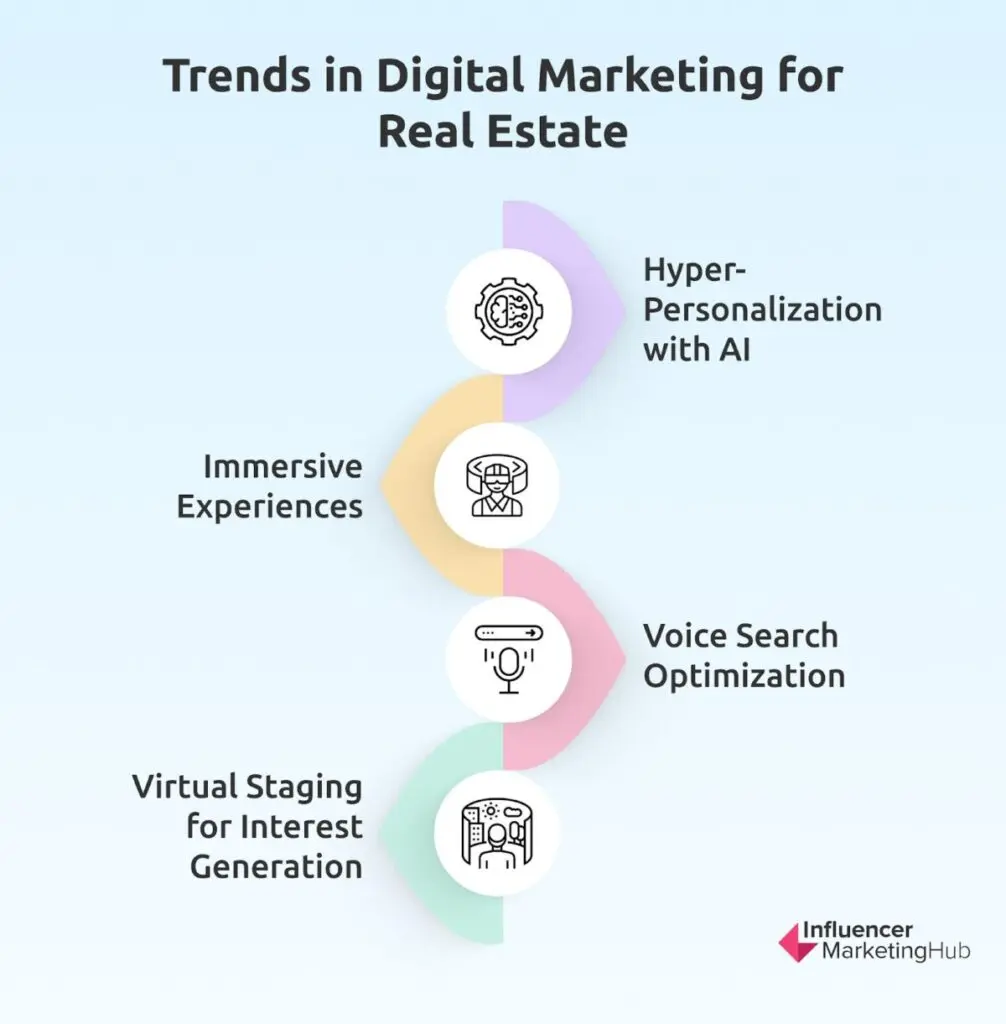
Real Estate Digital Marketing Trends
Hyper-Personalization with AI
AI is revolutionizing personalization in real estate. Picture tailored property showcases, chatbots on platforms like Facebook and WhatsApp offering immediate communication, and dynamic social media ads. This trend stands out for simplicity and effectiveness in engaging potential buyers.
Immersive Experiences
Move past standard virtual tours and anticipate the rise of 3D walkthroughs, AR overlays displaying furniture arrangements, and VR home exploration. These immersive technologies let potential buyers truly “feel” a property, providing a more engaging and realistic experience.
Voice Search Optimization
Thanks to smart speakers, voice search is also having its time in the spotlight. Focus on long-tail keywords, location-based queries, and conversational language for high rankings in voice search results. Align your SEO strategy with this growing trend to stay ahead.
Virtual Staging for Interest Generation
Virtual staging offers a cost-effective alternative compared to traditional home staging. AI-driven tools assist in converting vacant properties into fully furnished homes. Customize staging styles to align with audience preferences, saving time and effortlessly attracting more potential homebuyers.
Final Thoughts
Leverage digital marketing for effective real estate promotion, tapping into a vast and easily targeted audience for cost-effective property showcasing and a high ROI. To seamlessly integrate digital marketing into your real estate business, consider either in-house implementation or enlisting the services of real estate digital marketing agencies. Streamline your search by clearly outlining your goals for a quicker and more efficient selection.
Frequently Asked Questions
Is a dedicated website necessary for my real estate business?
Absolutely. It functions as your online storefront, displaying listings, expertise, and brand. Moreover, it enhances credibility and generates leads through contact forms and SEO.
What are the optimal social media platforms for real estate marketing?
Concentrate on platforms your target audience frequents. Utilize Instagram for visually appealing properties, engage with the local community on Facebook, and leverage LinkedIn for professional networking.
How can I make my online listings stand out?
Ensure high-quality photos and virtual tours. Highlight distinctive features with captivating descriptions, integrate relevant keywords, and maintain regular postings to stay prominent in searches.


